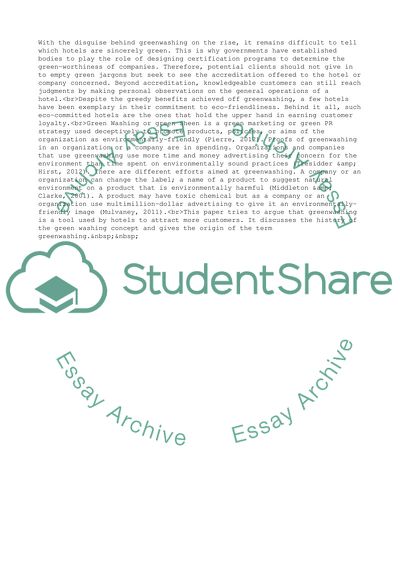Cite this document
(“Green Washing Labels in Hotels Research Paper Example | Topics and Well Written Essays - 2250 words”, n.d.)
Green Washing Labels in Hotels Research Paper Example | Topics and Well Written Essays - 2250 words. Retrieved from https://studentshare.org/business/1842263-are-hotels-using-the-green-washing-label-as-a-tool-to-target-more-customers
Green Washing Labels in Hotels Research Paper Example | Topics and Well Written Essays - 2250 words. Retrieved from https://studentshare.org/business/1842263-are-hotels-using-the-green-washing-label-as-a-tool-to-target-more-customers
(Green Washing Labels in Hotels Research Paper Example | Topics and Well Written Essays - 2250 Words)
Green Washing Labels in Hotels Research Paper Example | Topics and Well Written Essays - 2250 Words. https://studentshare.org/business/1842263-are-hotels-using-the-green-washing-label-as-a-tool-to-target-more-customers.
Green Washing Labels in Hotels Research Paper Example | Topics and Well Written Essays - 2250 Words. https://studentshare.org/business/1842263-are-hotels-using-the-green-washing-label-as-a-tool-to-target-more-customers.
“Green Washing Labels in Hotels Research Paper Example | Topics and Well Written Essays - 2250 Words”, n.d. https://studentshare.org/business/1842263-are-hotels-using-the-green-washing-label-as-a-tool-to-target-more-customers.


